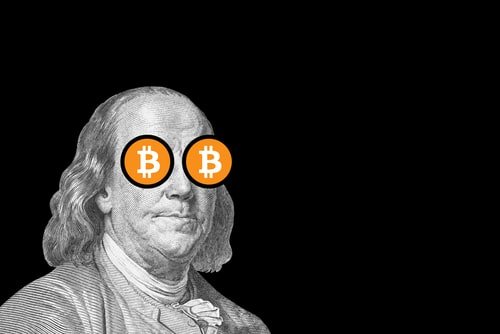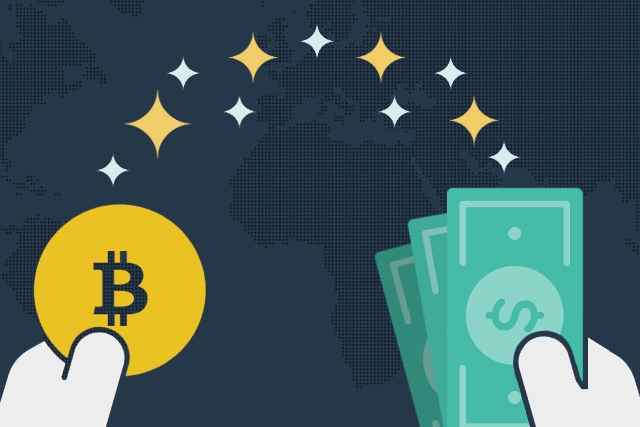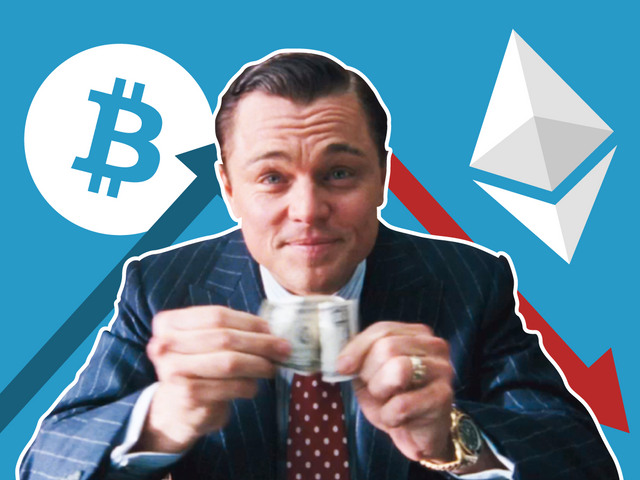Unbanking the banked : the next big thing ?

Our current global payment system relies on a complex network of banks and financial institutions, but do we need them? The craze for blockchains opens up a system built decades ago.. 2018 could mark a financial exit. Fexit.
Why remove reliance on banks?
Let's start by analyzing the current situation. In the age of the Internet, with the (more or less) free circulation of information available at our fingertips, we still use a payment system that is older than the Internet. This system is forty years old, and the paradigm that allows it to operate, a double-entry accounting system, is at least five centuries older !! Expensive, unsafe and slow, it's a real white elephant!.
What if we lived in a world where all transactions were person-to-person and cost almost nothing? What if we lived in a world where the value of the money saved increased little by little, not because of interest, but simply because, with the passage of time, you can buy more stuff with the same amount?
Bitcoin technology is not a central bank that can be regulated by a charter, a charter that can be controlled by lobbies and manipulated by governments. The contribution of Bitcoin currency is governed by an algorithm, and this algorithm ensures that Bitcoin will always be deflationary. This means that the rate at which the Bitcoin currency is created will gradually slow down to completely stop sooner or later. Therefore, as long as the economic activity (which dictates the money demand) increases slowly, this currency will gradually be worth a little more.

In the cryptocurrency economy, deflation is often at the heart of the protocol. This means that it is a very bad idea to borrow money in Bitcoin because you will need more and more as time passes and you will never be able to repay it. On the other hand, if you never go into debt and decide to save, the money you keep will be worth more each day.
This is a nightmare for banks because they want you to borrow more so you pay interest on your loans. They want to maintain a gap between the interest you pay and the cost associated with them lending you the money.
It's a bigger nightmare for banks when banks want you to open a savings account and deposit money so you can earn interest on it and stay in step with inflation. When you deposit money at the bank, the banks must keep only a tiny fraction (or none at all) in reserve and then create more money out of thin air to lend to more people at an interest rate. If you do not deposit this slows down this whole process for the bank and reduces their ability to loan money, make a profit and stay afloat.
To summarize, it is in the banks interest to keep money creation going by extending loans to people with a small amount used in deposits to help extend loans further, perpetuating a system based on debt where every dollar in existence has been created by going into debt, impossible to escape.
The most frightened banks are those developing in countries, where transaction costs are much higher than in developed countries. These fees are high because depositors tend to be poorer and save smaller amounts, so to counterbalance the fact that there is less money for the banks to invest, they are blaming their customers with large transaction fees. Developed countries tend to have many migrant populations who send money to their families using services such as Bitspark which allows sending money internationally to a person who can then go to a local shop to receive the associated amount. The transaction fees for such services are lower than standard one like Western Union and thanks to Bitcoin technology (blockchain it becomes a more cost efficient way of transferring and storing money, developed country banks will lose a very lucrative business.
The war against cryptocurrency has just begun. Traditional banks have a large stock of ammunition to carry it because their ammunition is money.
The early Internet was freer than today's. Encrypted currencies may be freer today than they ever will be.
Only banks will be affected by the cryptocurrency plague?

It will take a few years for us to really know the extent of this questioning, but it is clear that it will not be possible to do eternally "like in the good old days".
In the coming years, private banks and central banks will probably opt for an hybrid version of the blockchain to make instant, secure and free global payments (like Ripple). This will not solve the problems that Bitcoin was created to solve (to end our dependence on "benevolent dictators"), but it will solve the catastrophic inefficiency of our current system see the video here.
The tax structure and executive methods will probably also have to be updated. Some governments will not respond well to change and will decide to block, others will accept it and open up, leaving their citizens unprecedented economic freedom. Billions of people in the developing world, who currently do not have access to the most basic financial services, will, as we said, be able to contribute to the economy in a very significant way. This could fuel an incredible amount of innovation in absolutely every sector, and create many industries that we cannot imagine today. And all of this could cause a massive shift in the distribution of wealth.
Cryptocurrencies are an alternative to government currencies and governments are forced to enter a competitive market at some level. Governments are adopting blockchain technology for efficiency and control, and as a result it could potentially be possible for public money to become more transparent: public accounts instantly auditable by any citizen. Since capacity is built in automatically, the public is demanding more and more transparency. (The mantra: preserving the privacy of individuals, ensuring the transparency of public money.) Politicians, little by little, will find it increasingly difficult to justify their hidden fees or discretionary envelopes. As data improves and becomes more detailed, it also becomes more difficult to hide the financial incentives behind policy reforms (in fact, anonymous prediction markets may have more influence on political changes that corporate lobbyists do not have today). Since much of the public money paid to civil servants can be tracked to the nearest thousandth of a cent by any citizen, there is no room for corruption. If the public does not agree with the allocation of state money, the protests could become an almost impossible option to stop. In this scenario, it would become very unattractive (or even dangerous) to be a corrupt official. Politics would then begin to attract people who are humble, friendly, and who would feel responsible to other citizens, rather than those who have only the desire to defraud the general public.
Subscribe to our newsletter to get the last update of Bitspark and cryptocurrency world.
https://mailchi.mp/bitspark.io/zephyr...
Bitspark Homepage: https://www.bitspark.io
Bitspark Blog: http://blog.bitspark.io/
Bitspark Twitter: https://twitter.com/BitsparkLTD
Bitspark Facebook: https://www.facebook.com/BitsparkLTD
Zephyr Telegram Group:
https://t.me/joinchat/BQS59kQMk8bL74v...